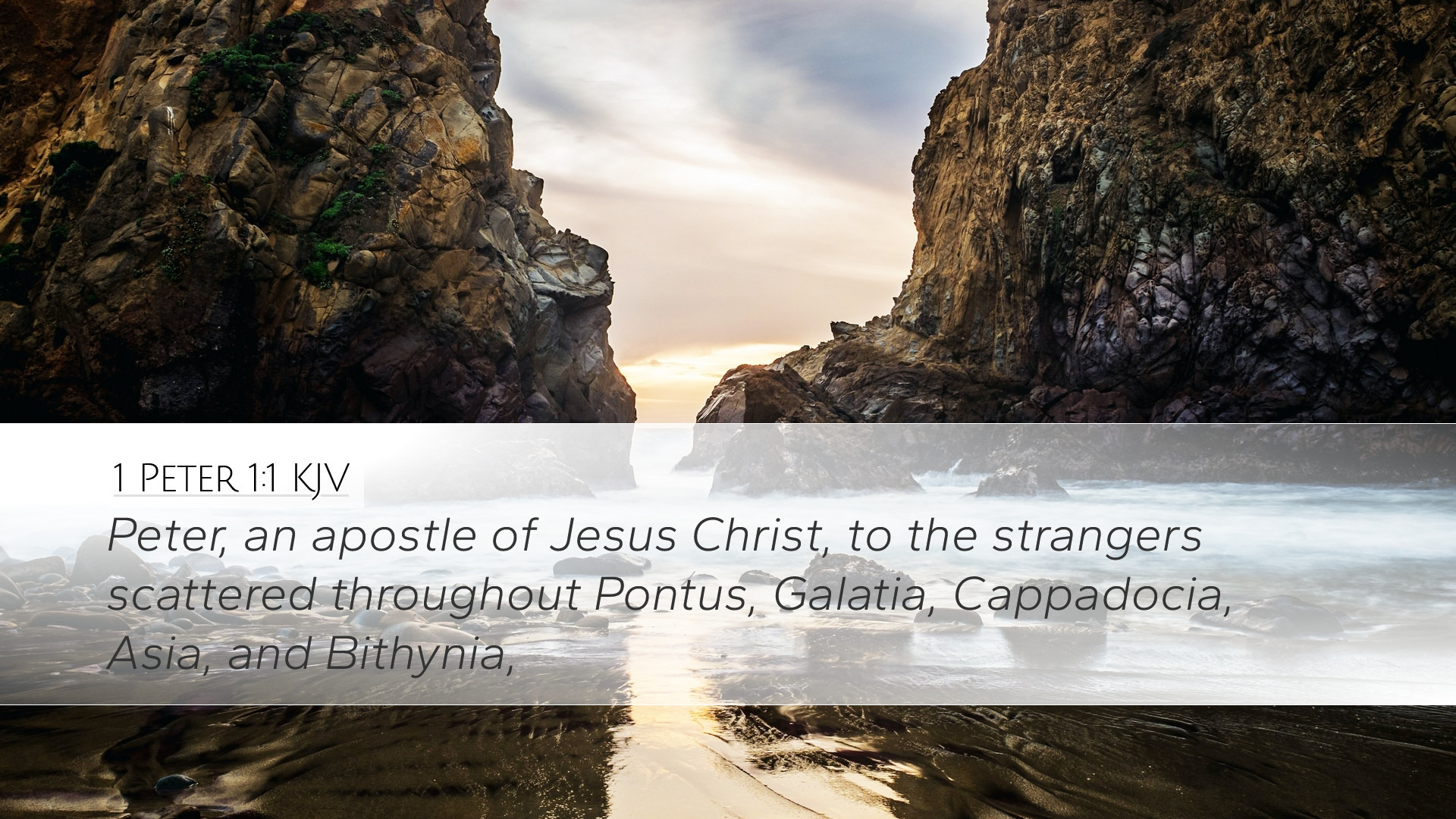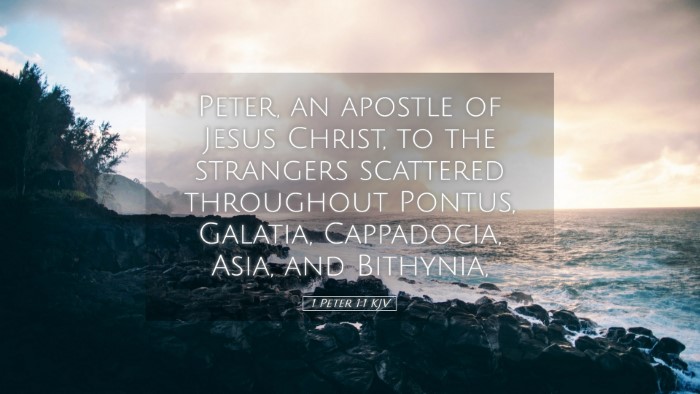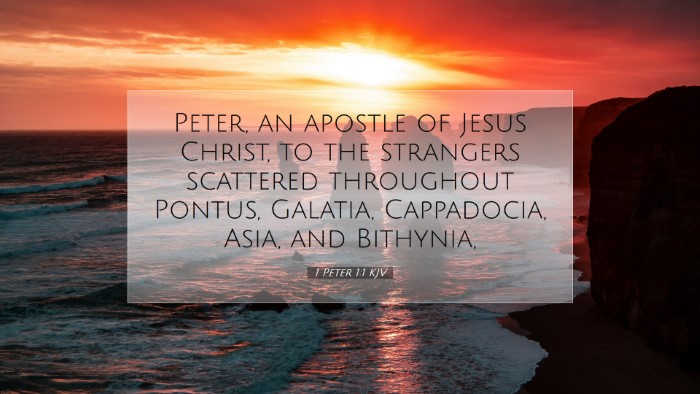Commentary on 1 Peter 1:1
1 Peter 1:1 states: “Peter, an apostle of Jesus Christ, to the strangers scattered throughout Pontus, Galatia, Cappadocia, Asia, and Bithynia.”
Introduction
This opening verse of Peter's epistle sets the tone for a profound letter addressing believers facing trials and persecution. It reveals not only Peter's identity as an apostle but also his pastoral concern for the scattered Christians in various regions. The significance of the text is manifold, drawing insights from several public domain commentaries that enrich our understanding.
The Author: Peter, an Apostle
The verse identifies the author as Peter, one of the twelve disciples of Jesus and a central figure in the early Church. Matthew Henry emphasizes Peter's role, suggesting that his apostolic authority lends weight to the letter, asserting it as divinely inspired. Peter's position as an apostle not only establishes his leadership but also aligns the message with divine authority.
Albert Barnes notes the transitions in Peter's life—from a fisherman to a foundational leader of the Church—which gives significant credence to his writings. This transformation illustrates the power of the gospel to change lives and empowers believers to also undergo transformation in Christ.
The Audience: Strangers Scattered
Peter addresses “strangers scattered”, a term that denotes both the physical dispersion of believers in Asia Minor and their spiritual status as pilgrims on earth. Adam Clarke explains that this description of the believers highlights their alien status in a world that opposes their faith. They are not of this world, as their true citizenship lies in heaven.
Moreover, "scattered" serves to indicate the reality of persecution and suffering faced by early Christians. Matthew Henry emphasizes that this scattering might have resulted from the persecution under Nero, suggesting that Peter's intent is to provide comfort and guidance to those enduring trials.
Geographical Context
Peter mentions specific regions: Pontus, Galatia, Cappadocia, Asia, and Bithynia. This geographical list underscores the vast area of dispersion, suggesting that the message of Christianity had already penetrated various parts of the Roman Empire. Barnes observes that this indicates the growth of the Christian faith and its spread across diverse cultures.
This also highlights the unity of believers across different locales, as they share similar struggles despite their geographic distance. In this way, Peter knits them together with a common purpose and identity in Christ.
Theological Implications
This verse encompasses crucial theological aspects, such as the identity of the Church and the nature of Christian suffering. Matthew Henry comments that identifying believers as strangers suggests their separation from worldly values and an expectation of future hope. The apostolic blessing that follows this opening shows that despite their trials, they possess a divine inheritance.
From Clarke's perspective, calling them strangers foreshadows the larger themes of the epistle regarding holiness, hope, and the imperishable nature of their inheritance. Clarke specifically emphasizes that believers are called to live in a manner that reflects their heavenly citizenship, offering a stark contrast to the surrounding pagan culture.
Exhortation and Application for Today
For pastors and theologians, this verse serves as a reminder of the mission to reach those who feel scattered or isolated in their faith. There is an urgent call to bring the message of hope and belonging to communities, encouraging the faithful that they are not alone in their struggles.
Students of the Word are reminded of the importance of context in understanding Scripture. The historical and cultural settings of Peter’s audience can shed light on current issues faced by Christians worldwide, revealing that while times change, the experiences of suffering and longing for belonging remain constant.
In summary, 1 Peter 1:1 serves as a foundational introduction to an epistle filled with rich theological insights. Addressing the pain of exile while focusing on heavenly hope, it provides a timeless message for those navigating their own 'scattered' experiences in a world that often feels hostile to faith.


